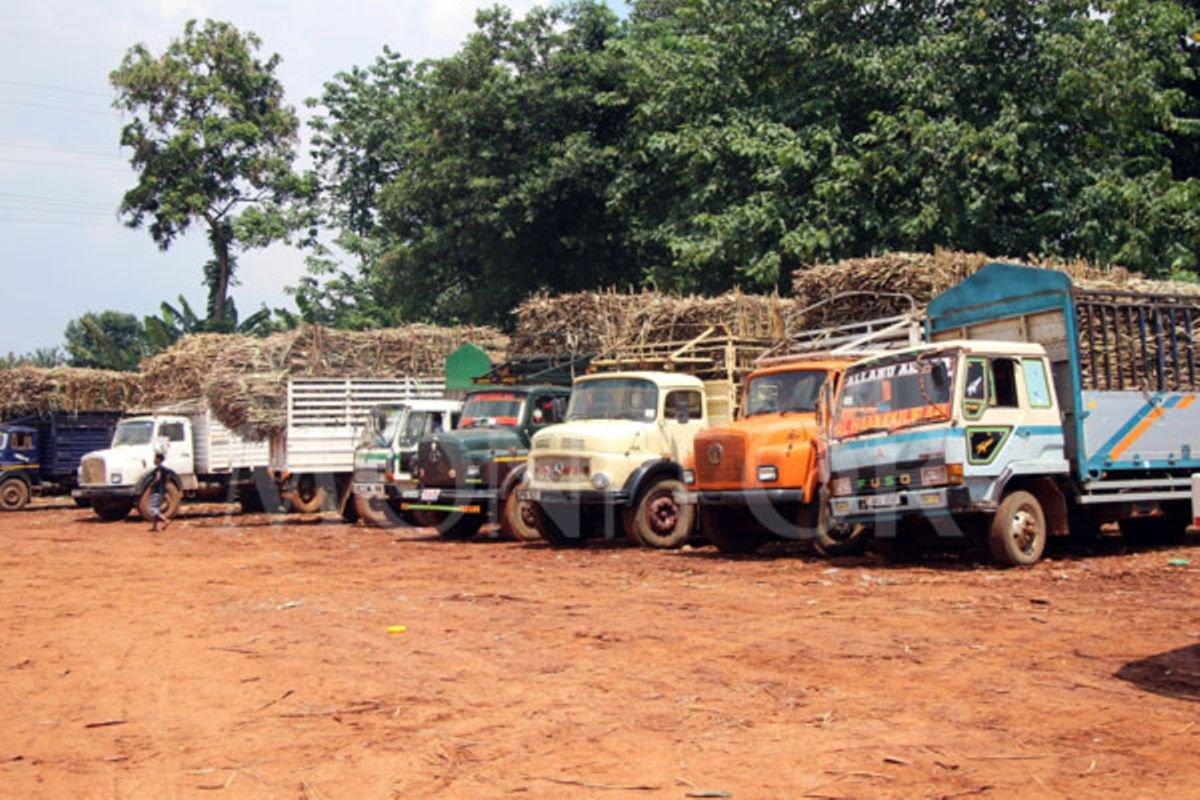Africa-Press – Uganda. Sugarcane outgrowers and transporters in the districts of Buikwe, Mukono and Kayunga have suspended supply of sugarcane to Sugar Corporation of Uganda Ltd (Scoul), citing low prices and delay to offload trucks at the factory.
Mr Julius Katerevu, the chairperson of Lugazi Sugarcane Transporters Cooperative Society, said Scoul pays Shs250,000 per 10 tonnes of cane, a rate that severely affects their profit margin.
“The cost of production in terms of fertilisers, cultivation, and transportation of the cane from plantations to the factory is higher than the payments we receive and the situation has been exacerbated by the rising fuel prices. But the managers at the factory have refused to look into this,” he said told Daily Monitor in an interview on Tuesday.
He claimed that whenever they transport the cane to the factory, priority is usually given to loaded trucks owned by the factory, which keeps them waiting for several days.
“We have to wait for their trucks to offload before they can think about ours and this can take two to three days, when we are just seated there, spending, but not earning,” he said.
Mr Katerevu claimed that some foreigners who are involved in supplying cane to Scoul, are also given preferential treatment as their trucks are off loaded at least twice a day.
“They [foreigners] are given special treatment, they come in trucks with Kenyan registration plates and they do not line up like us,” he added.
He said they are not going to sell cane to the factory anymore until prices are revised upwards.
Mr Suresh Bochco, the general manager in-charge of outgrowers at Scoul, said the outgrowers know where to take their concerns.
“Our issues are not handled in the media, those complaining know who to handle their issues,” he said in a telephone interview.
Mr Davis Bwengye, a transporter and sugarcane farmer, called for establishment of more sugar factories, claiming that the existing ones cannot absorb all the cane harvested by the outgrowers.
“We need more sugar factories to solve this problem because we always come and spend weeks here [at Scoul]. If we were supplying the cane as fast as possible, it would also help us make more money,” he said.
He also urged government to prevail over middlemen, who he said are operating an extortionist cartel permit system where they pay more than Shs1m to get clearance to supply to millers.
“Getting a permit to supply cane is a hustle. But even after getting it, we struggle a lot to earn some profit from our produce,” he said.
In April 2020, President Museveni assented to the Sugar Bill.
Among the key objectives of the Sugar Act, is to sustain sugarcane production directly linked to milling to avoid a glut.
In the Act , the government proposes zoning of 25km, which will essentially not allow establishment of a sugar mill within such a distance, as well as proposing that outgrowers in particular areas should only supply sugarcane to mills within that area.
Although legislators, especially from the Busoga Sub-region, had rejected the proposals, arguing that small scale farmers cannot be left out as long as they can find factories where they can sell their cane, Parliament subsequently passed the Bill before it was resent to be signed by the President. The Bill was gazetted into an Act after the President signed it last year.
Sugar industry in Uganda
Currently, Uganda has 10 sugar factories and more 10 others are set to join the industry in the near future. Majority of the sugar factories are concentrated in Busoga sub-region.
The sugar sub-sector contributes more than Shs54b in revenue to the government through Value Added Tax and Excise Duty.
It employs 20,000 people directly and another 50,000 indirectly in the outgrower farms.
According to statistics from the Bank of Uganda, Uganda’s sugar export earnings grew by 52.8 percent in 2012 to $105.27m (Shs372b).
However, between 2012 and 2014, the country’s sugar export earnings reduced by 30 percent to $72.22m (Shs255b) due to political conflicts in South Sudan thus resulting in a reduction in export volumes from 138,704 to 114,910 tonnes during the same period.
For More News And Analysis About Uganda Follow Africa-Press






